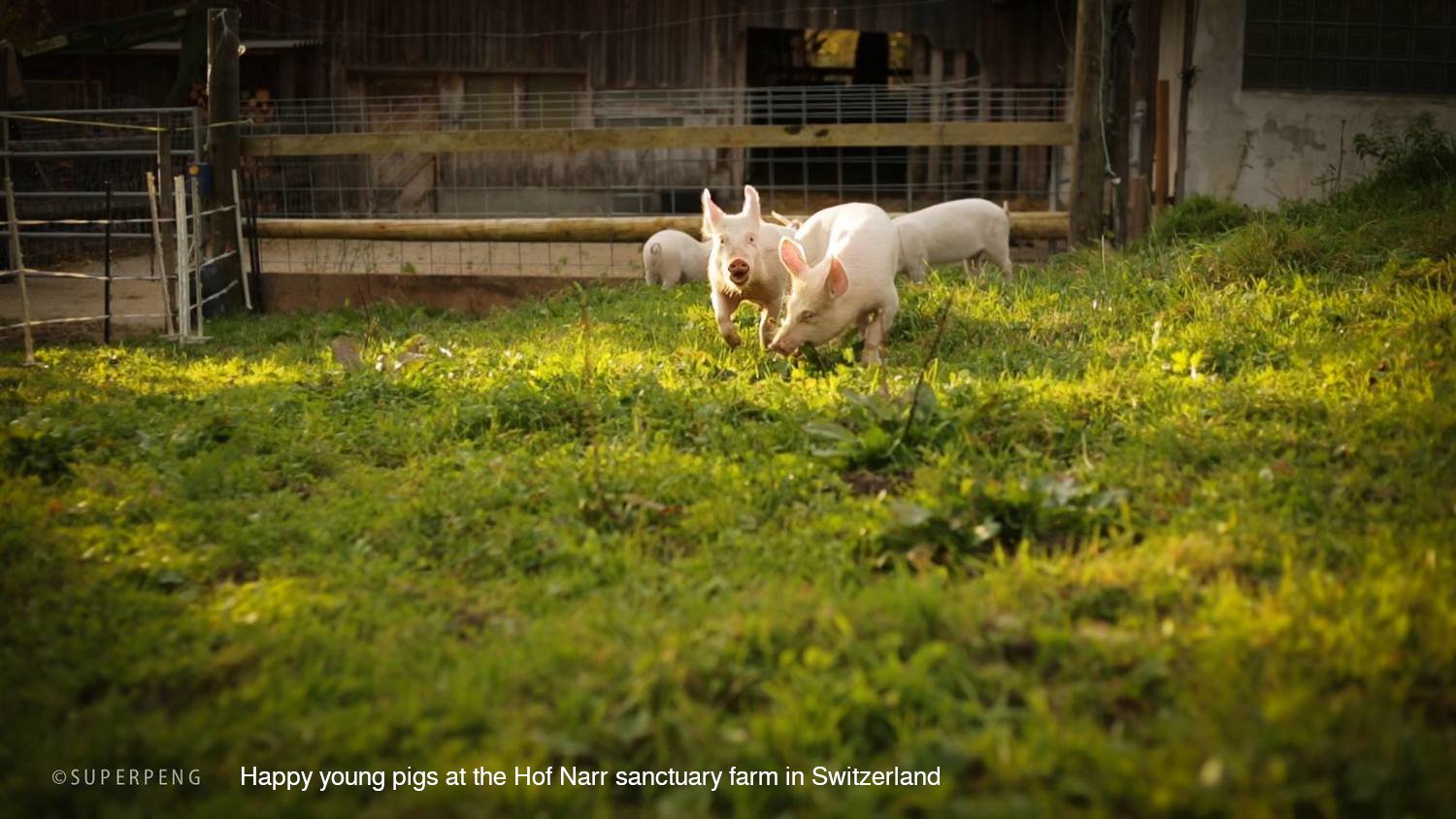These images were filmed in 2022 in Switzerland, on a standard farm dedicated to the piglet production for fattening, labelled SST/SRPA, i.e. "particularly respectful of animals".
Artificially inseminated , the sows give birth to more than 100 babies in just 4 years. The piglets are born on the dirty concrete and metal. Many still die as babies, and those who survive this hell are sent to the slaughterhouse after 6 months of confinement.
In Switzerland, every year, almost 100,000 sows and more than 2 million piglets endure the life our images expose.
With their bodies numbered and forced to give birth to piglets for fattening, the sows are treated as breeding machines. An uncastrated male is used to detect heat before artificial insemination. The babies are castrated to preserve the taste of their flesh.
With an average of 5 cycles of insemination, gestation and delivery, and 29 babies per year, exhausted sows are sent to slaughter at the age of 3. The piglets spend 4 weeks with their mothers, then are fattened and slaughtered at 6 months. Many die soon after birth, their corpses are piled in dumpsters and counted as a casualties. Pigs should live up to 15 years.
These animals spend their entire life in an enclosed space, on a concrete floor covered in faeces, in constant noise and stench. The sows live more than 200 days in a cage over a period of 3 years, without being able to turn around. Supplements, medicines and antibiotics compensate diseases, deficiencies and infections caused by this environment.
The meat industry is an organised system, entirely conceived for exploitation, confinement and killing. From the architecture to the equipment, no detail is overlooked. Cages, catheters, heat lamps, tooth files, castration holding devices, corpse trolleys are all designed to order and make animal lives economically profitable.
Lameness, wounds and diseases are common and often left untreated. Some piglets die in front of their mothers and siblings. Sows show signs of stress and boredom, psychological distress caused by a lifetime of confinement.
Help us to raise awareness about the reality of factory farming in Switzerland
On 25 September, vote YES to the ban on intensive livestock farming.
There are many ways to take action beyond voting. Animal exploitation is political: fight for its dismantling.
